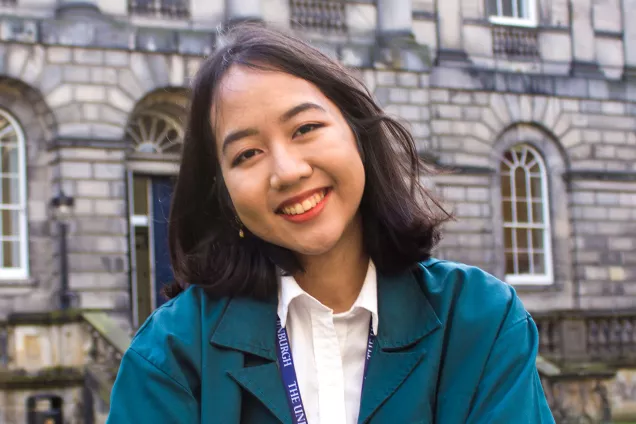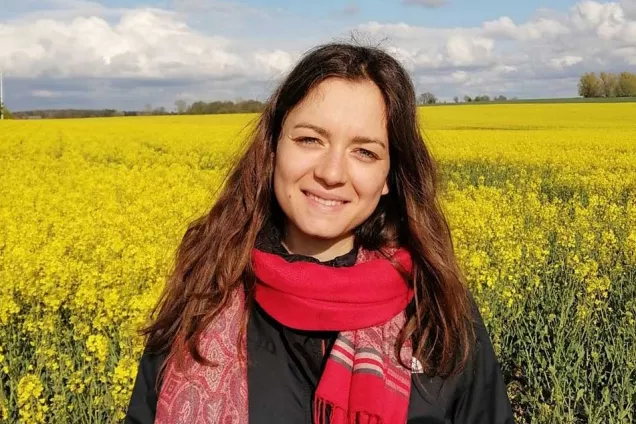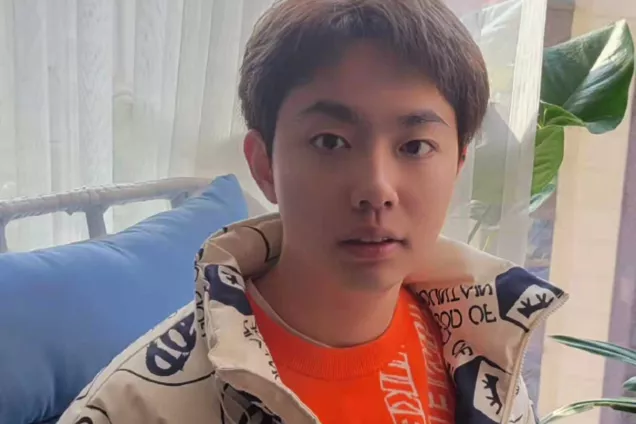What Vanessa says about the Master's in Biotechnology

Vanessa from Germany, now Junior Research Assistant at Nestlé Research Center
When will you graduate?
"I will graduate in 2020."
What is your current job and where is it located?
"I don’t have a job yet. Currently, I am in an internship at Nestle’s research center in Lausanne, Switzerland."
How are you changing the industry or the world, in a small or large way?
"The company recognised the problem and negative implications of non-degradable/non-recyclable plastic packaging. The newly opened packaging institute is aiming to reduce pollution of the environment by testing biodegradable, more easily recyclable packaging materials and designs. My project is part of that big goal."
What was especially useful about the programme that you use in your everyday work?
"Team work and the interdisciplinary nature. The courses in the Biotechnology programme require a lot of team work. There was the project in the life science course were we had to collaborate in groups of 5 for 6 months, testing different team roles and gaining expertise to find a new parodontitis treatment with silk gels.
In another project, we had to come up with our own bioanalytical assay to detect PHAs leaching from a petroleum station. I continuously learned a lot about how to work with people from different cultural and educational backgrounds, how to distribute tasks, how to organise meetings, as well as what own weaknesses are.
The programme is also very broad; you get a glimpse of many fields, for example, food microbiology or bioinformatics. However, at the same time you can focus by taking an advanced course in and dedicating your thesis to a field that you are particularly interested in.
In my current internship, I need all of these skills to connect different people in a very interdisciplinary project connecting bio-, polymer- and analytical chemistry."
What do you miss the most from your time at Lund University/LTH?
"The thing I definitely miss the most is the international outlook of the student crowd and staff at the University. Before starting the international Master’s programme, I had many prejudices about our world, as I have not travelled to many places yet and had all the common misconceptions. My classmates taught me a lot about the countries and cultures they come from, how things are connected, and how actions in one place have consequences for the lives in another.
Even though I haven’t seen much of the world myself yet, I could still travel through the eyes of my friends and colleagues to Italy, India, Bolivia, Egypt, South-Korea, Iran, Botswana, and many more countries. This has been very valuable and there are not many places that offer this experience."
How did you find out about Lund University?
"Before my Master's, I had an opportunity for a six-month Erasmus exchange. Afterwards, I decided to come back because I enjoyed my stay so much."
What do you think of the teaching style and way of studying here at Lund?
"Teaching at Lund was very different from the German teaching style at my home university. Courses are smaller, knowledge is acquired more through application, team work, exercises and projects than through pure lectures.
I liked this a lot. I prefer the Swedish system of a reduced and more intensive course load – it's much better than having four courses at the same time as usual. Finally, everything is taught in English: lectures, presentations, reports, and exams. This offers a good opportunity to sharpen one’s level of English to a high level."
What was the focus of your thesis?
"My thesis was focused on producing a chemical that could be used for cosmetics or biodegradable sutures in medicine, for example for stitching an open wound. Another aim was to produce a polymer by enzymes instead of metal catalysts."
Were you involved in any extracurricular activities in Lund?
"There are so many activities that it’s very hard to try them all. To practise my Swedish, I went to the language café called Café Multilingua. To meet up with LGBT people, I joined Project 6 from time to time. There is also a Toastmasters Club at the Ideon campus, which is very good for improving communication and leadership skills and getting to mingle with an interesting community representing companies all around Lund and the University. There is also the free Escrima club in Northern Lund, which is very good."
Do you have any advice for prospective students coming to Lund?
"I have two pieces of advice. First of all, make sure to have a plan B if you don’t have accommodation yet, it can be as difficult as people say. Especially if you’re from an EU-country – then you don't have a housing guarantee. What helps a lot is to applying to many potential landlords with a nice photo and description, almost like applying for jobs. If not, you should have a plan C – couch surfing – until you find something.
Finally, this is a great place to do your Master's – try to learn as much as you can and enjoy life!"

Meet our student ambassador Hilya
Read her testimonial and chat with her via Unibuddy.

"Every course was unique and designed with care"
Uthra from India

"We used some state-of-the art technologies"
Rebeka from Slovenia

”I learned to work with people from different backgrounds”
Virginia from Italy

"Share your views and ideas with people worldwide"
Maochao from China